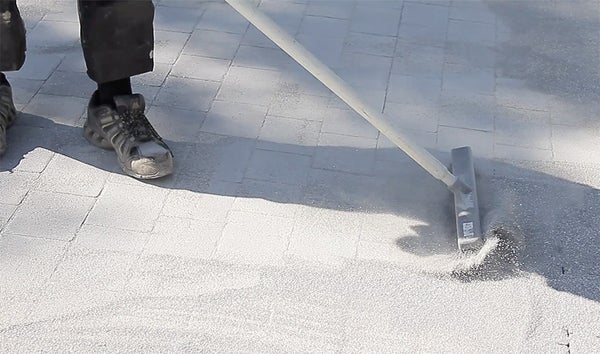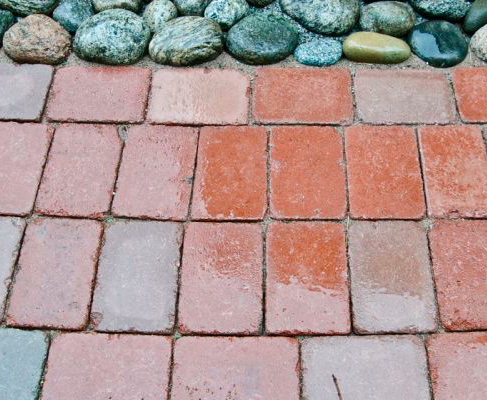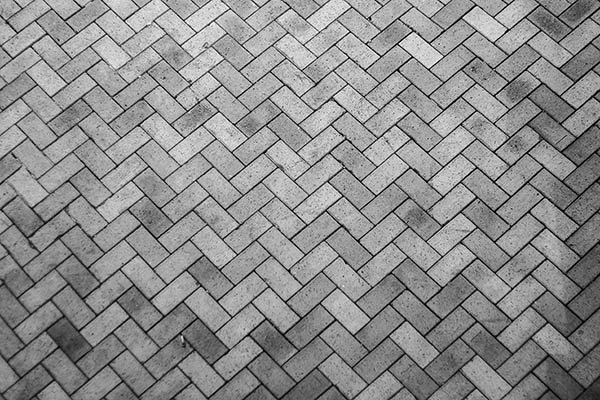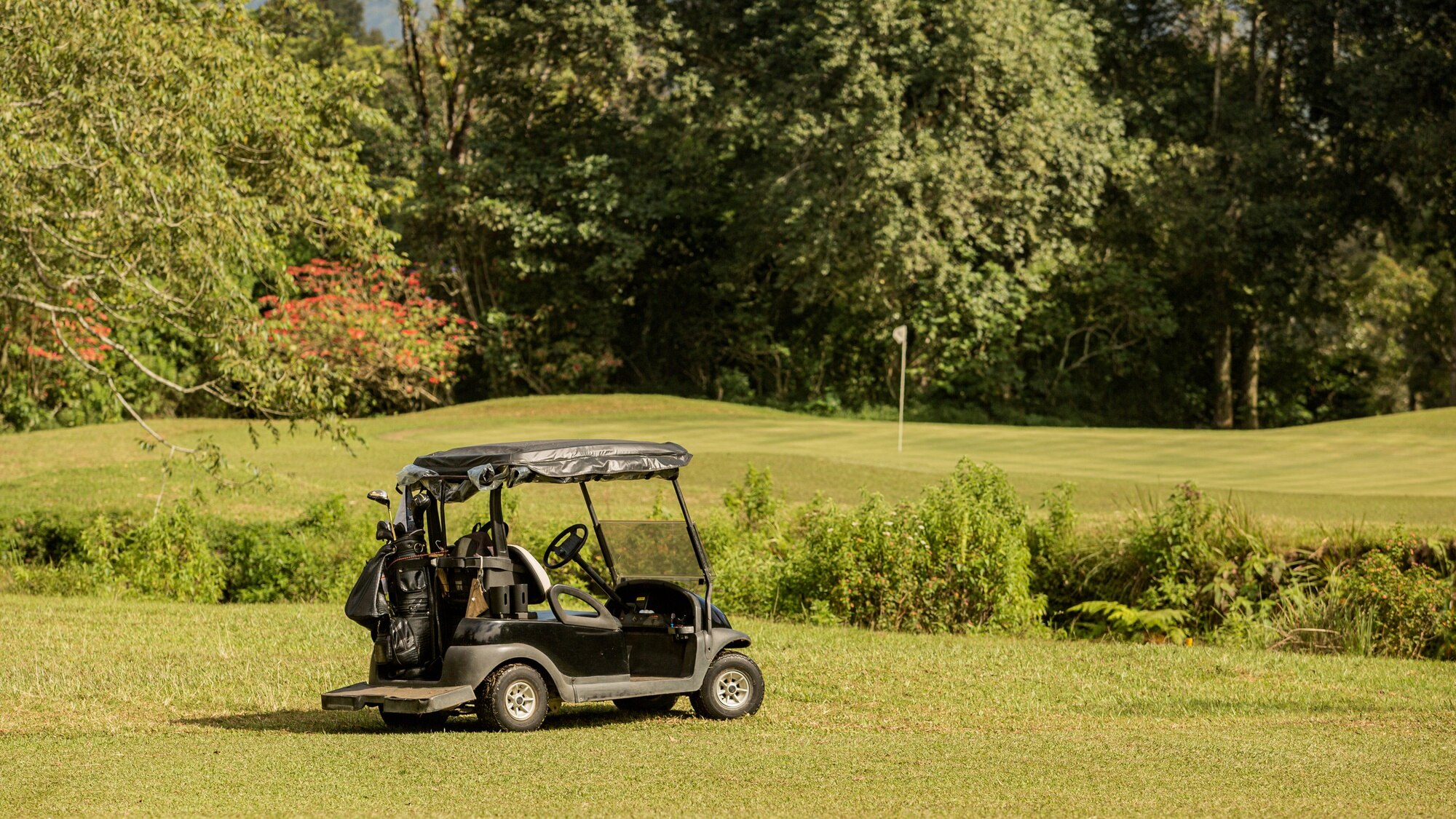All the rain in the past few months has been wonderfully drought-relieving, and certainly helps to keep things clean. However, it also keeps your concrete pavers wet; and the combination of heat and moisture can cause unwanted outcomes for your pavers.
Once pavers have been wet, the heat from the sun draws any moisture in them up to the top surface. This in itself is not a problem, although it can become so when there are impurities present in the water. These impurities get drawn to the surface with the water, which then evaporates, leaving the minerals or impurities behind on the surface of the paver. These mineral deposits are known as efflorescence, and leave your pavers looking faded, dull and unclean. This phenomenon doesn’t affect the structural integrity of the masonry in any way, but it can be aesthetically displeasing. As well, heat coupled with moisture can cause other issues with your pavers when wet leaves or twigs are present on the surface, as the tannin from these contaminants can soak into the paver surface and create marks and stains.

While you can’t control how much moisture reaches your pavers, you can ensure that the rain doesn’t leave your pavers looking less than their best. While efflorescence will usually disappear over time, you may want to accelerate the process. Here’s the best way to deal with efflorescence and other staining agents on your pavers.
Clean it off
The best way to rid your pavers of efflorescence is with a good old-fashioned soft-bristled broom. Dry brush the pavers to remove all the white, powdery deposits, and then use a dustpan or vacuum cleaner to clear up all the solidified material. Then scrub the pavers with a brush and clean water. This method is the safest one to use, as there is little to no risk of damaging the surface of the pavers.
However, you CAN use a high-pressure water cleaner if you have a large area to clean, the surface is very dirty and marked or the deposits are very old and prevalent – but you’ll need to be very careful if you do so. Concrete blocks and pavers can be damaged due to overpowered water pressure, so you need to carefully follow guidelines:
- Use the correct water jet pressure to prevent damage – maximum pressure at the pump should be kept below 6,900kPa (1,000 psi).
- Don’t hold the jet closer than 500mm from the wall.
- Use a fan jet with a spray angle of approximately 15 degrees rather than a straight water jet.
- Turbo or rotary head attachments are not recommended as they can damage the surface.
- If you are using chemical cleaners in conjunction with pressure cleaning, don’t add the chemical to the pressure cleaner, but only use it to wet and wash down the surface.
- Do a cleaning test first on a small, out-of-the-way area to determine whether you are going to cause damage to the surface.

Bleach it
Organic stains left on your pavers by animal droppings, timber stains, tannin from leaves etc., can be removed by bleaching the area. For this you can use:
- Pool chlorine mixed 1:10 with water
- Specially formulated chlorinated cleaners like Environex Maestro
- Diluted household bleaches like White King, Domestos
Be aware that spot bleaching may lead to “clean spots” on your pavers, so it’s best to follow your spot clean of soiled areas with a more diluted all over bleach clean to even out the look of the surface. And you don’t need to worry about this removing the colour of the pavers, as bleach only affects the organic matter on the pavers, not the mineral oxides used to colour them.
Try acid washing
You need to be very careful with acid washing, as doing so incorrectly may cause streaking, fading, etching or colour changes on concrete masonry. There are specific types of acidic cleaners that are formulated for cleaning masonry however, such as Environex Anti Eff (have a look here https://environex.net.au/stonecleaners/anti-eff-4/). These are safe to use on certain concrete products (always check the instructions and suitability before use though, as, for instance, Environex Anti Eff cannot be used on Bluestone, Travertine, Marble, Limestone or Limestone composite products).
You should never use harsh acids like hydrochloric acid, as this aggressive chemical can destroy or “burn” the paver surface. Any acid will etch the surface of the concrete a little if applied strongly enough, particularly if you are dealing with stubborn stains such as hardened mortar smears or heavy mineral deposits where you’ll required a more concentrated solution. It’s wise to test the acid on a disposable paver first to see what affect the solution may have at the concentration you require. And use acids as a last resort in any concrete cleaning operation.
General cleaning tips
To keep your pavers generally clean, a PH-neutral domestic detergent mixed into warm water and applied with a broom is very effective. General purpose floor cleaners or even a bit of Morning Fresh diluted into warm water can also do the trick and keep your paved area looking fresh, hygienic and clean.
As well, try to do your paver cleaning on warmer days, as this will allow pavers to dry quicker, which will help minimise efflorescence caused by salts coming to the surface as wet pavers slowly dry out.
Inspect your pavers regularly and follow these guidelines as necessary and you can’t go wrong! Your pavers will stay looking good for a very long time and provide a wonderful return on your investment.





Leave a Reply